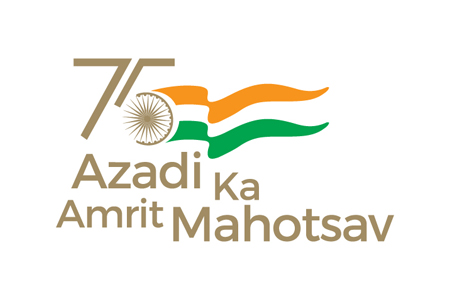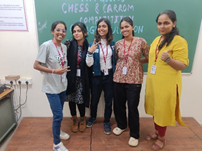Indoor Games
On 30th September 2024, MM BGIMS hosted an indoor sports event featuring Chess and Carrom, with participation from the MMS batches of 2023-2025 and 2024-2026. A total of 50 students competed in Carrom and 12 students in chess, while the remaining students contributed as volunteers and audience members. In-house faculty members officiated as referees, ensuring smooth conduct and fair play throughout the event.
Introduction & Objectives
We know that indoor sports play a crucial role in promoting physical fitness, mental sharpness, and team spirit among students. The Chess and Carrom tournaments for Semester 1 (2024-2026) and Semester 3 (2023-2025) students were organized to encourage participation in extracurricular activities, recognizing that such games are integral to cognitive development and stress relief. The objective was to foster a healthy competitive spirit while emphasizing the importance of strategic thinking and focus, which align with the institute’s commitment to holistic student development.
About the Event
The indoor sports event featured thrilling Chess and Carrom matches, where students from Semester 1 and 3 showcased their skills. The competition, organized by the sports committee, saw active participation with students demonstrating sharp thinking, concentration, and sportsmanship. Faculty members were present to oversee the matches, ensuring a fair and engaging experience for all participants. The Chess segment highlighted intellectual rigor, while Carrom brought a more relaxed yet competitive edge, fostering camaraderie among students across batches.
Learning & Feedback
Students and faculty alike valued the event for its ability to combine fun with learning. Participants sharpened their problem-solving skills through chess and developed precision and teamwork through Carrom. Feedback indicated that students appreciated the opportunity to unwind from academic pressures, while still engaging in mentally stimulating activities. Many noted how such events helped build cross-batch relationships and contributed to overall well-being, aligning with the institute’s goal of promoting a balanced student life.
Conclusion
The Chess and Carrom tournaments successfully met the objectives of fostering strategic thinking, team building, and student engagement. By offering a platform for both physical and mental activity, the event underscored the importance of extracurricular involvement in a well-rounded educational experience. The positive reception of the tournament highlights the value of continuing such initiatives, which contribute to a vibrant and collaborative campus culture.


